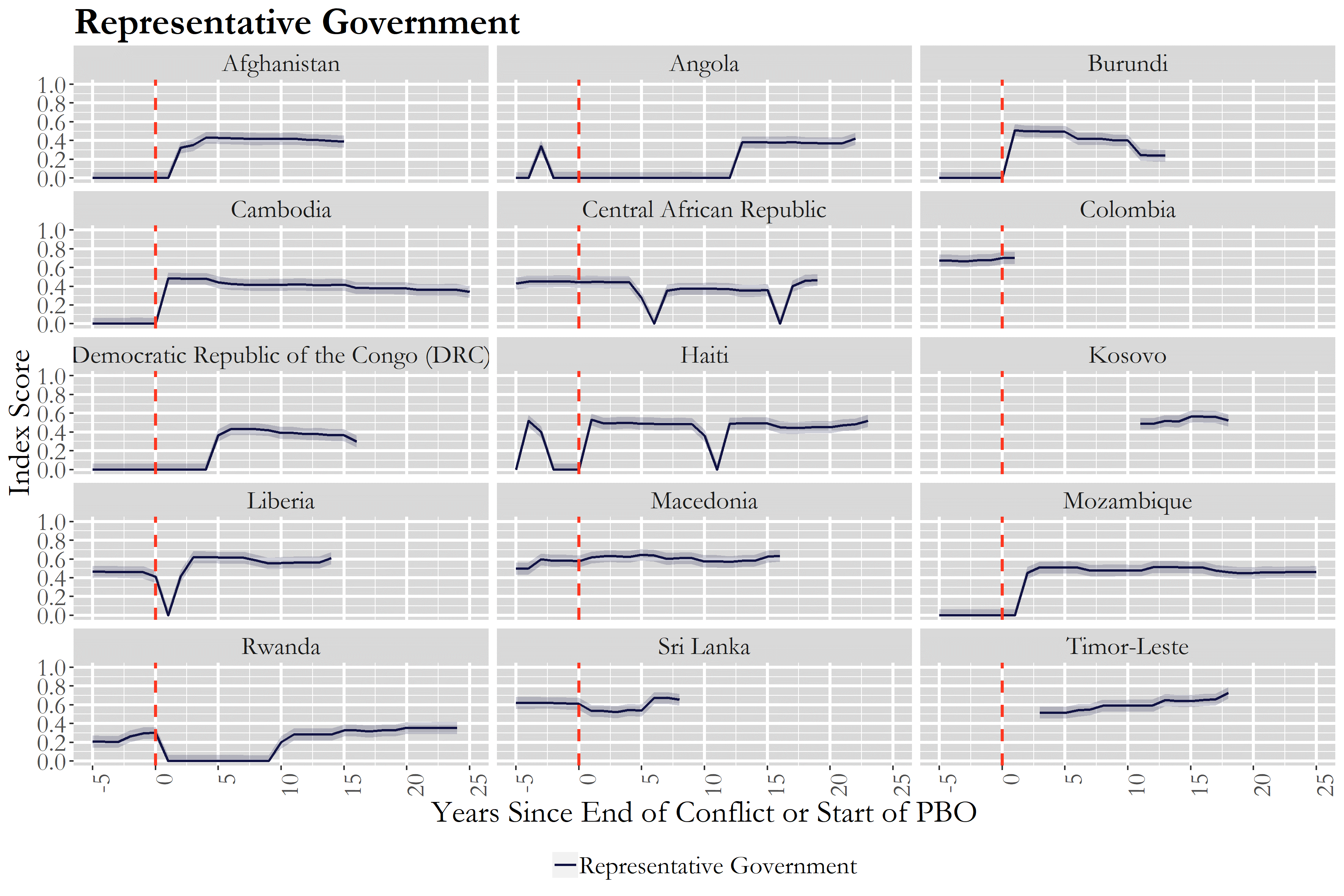Inclusive peace – or no peace at all

The United Nations has declared 21 September as the International Day of Peace. This year, the day will be marked with the motto “The Right to Peace - The Universal Declaration of Human Rights at 70”. As stated by the UN Secretary-General, António Guterres, this is a day that “…embodies our shared aspiration to end conflict in all its forms and to safeguard the human rights of all people. It is a day on which the United Nations calls for a 24-hour global ceasefire, with the hope that one day in our lifetime we will witness an end to violence”.
For peace to be durable and sustainable—particularly in countries emerging from internal strife—it is paramount for governments to be inclusive across ethnic, national and religious divides. This was also the message conveyed in International IDEA’s first edition of The Global State of Democracy, Chapter 8: Inclusive peacebuilding in conflict-affected states: designing for democracy’s resilience.
In countries undergoing conflict to peace transition, inclusive peace is a precondition that often determines whether the country is going to slide back into conflict or if it will make a clear departure from its conflict-ridden past. This applies both to countries where there are peacebuilding operations, or in those where peace accords have been signed to mark a formal break with hostilities. International IDEA’s Global State of Democracy indices, which depict democratic trends across a broad range of attributes of democracy, can be used to measure the sustainability of representative government (free and equal access to political power) after the end of hostilities. Zooming in on the representative government attribute in several countries which have experienced conflict, we can draw some conclusions as to the nature of peace and democratic governance and how it compares with times before peace accords were signed.

The above chart depicts timelines on the quality of representative government from the moment peace accords were signed, or when a peacebuilding operation commenced, to the end of 2017. While this does not measure peace per se, the regularity of this indicator can provide insights into the stability of the pathway towards peace and democratization. What we can observe is that, while there are no guarantees, the chances for peace to take root are greater in countries where governments tend to be more representative. Where there is a comparatively more credible track of clean elections, free political parties and elected governments—which are all sub-attributes of representative government—and inclusive democratic institutions, there are better chances for a departure from conflict to sustainable peace. The more robust and inclusive democratic institutions and processes that are built in the post-conflict period, the more resilient their future democratic systems will become and the more able they will be to prevent a recurring conflict. For example, we can see a clear improvement in representative government in Liberia and Timor Leste, which has translated into a more sustainable peace. Countries like Macedonia have also experienced some improvements in this attribute recently, whilst Kosovo’s recent decline, while not statistically significant, could indicate the start of democratic backsliding. On the other hand, countries such as Burundi or the Central African Republic have experienced dips and declines in representative government since the peace accords. In situations of latent and simmering conflict, it is harder for democratic processes and inclusive institutions to consolidate and for peaceful and stable democratization to take root, which also translates into less stable scores on this attribute. Statistical data from Colombia still does not show a clear difference from before peace accords were signed, but this might also be due to the short timeline between peace accords signed two years ago and the present day.
The post-conflict transition is not necessarily peaceful. However, inclusive governance and adherence to fundamental rights can help a great deal in overcoming challenges to peace and parting ways with a violent past. Moreover, the resilience of democratic institutions depends primarily on their inclusiveness, which goes beyond the quest for simple numerical representation. It proactively encourages people to express their viewpoints and be part of the political debate, from which they may have been excluded in the past. Therefore, active and targeted inclusion ensures that political representatives consistently seek the constituents’ views, and that they incorporate these views into higher-level political discussions and decisions. Active and targeted inclusion, therefore, gives the state an opportunity to overcome post-conflict transition and consolidate peace, which in turn paves the way for inclusive and representative democratization to take place.





